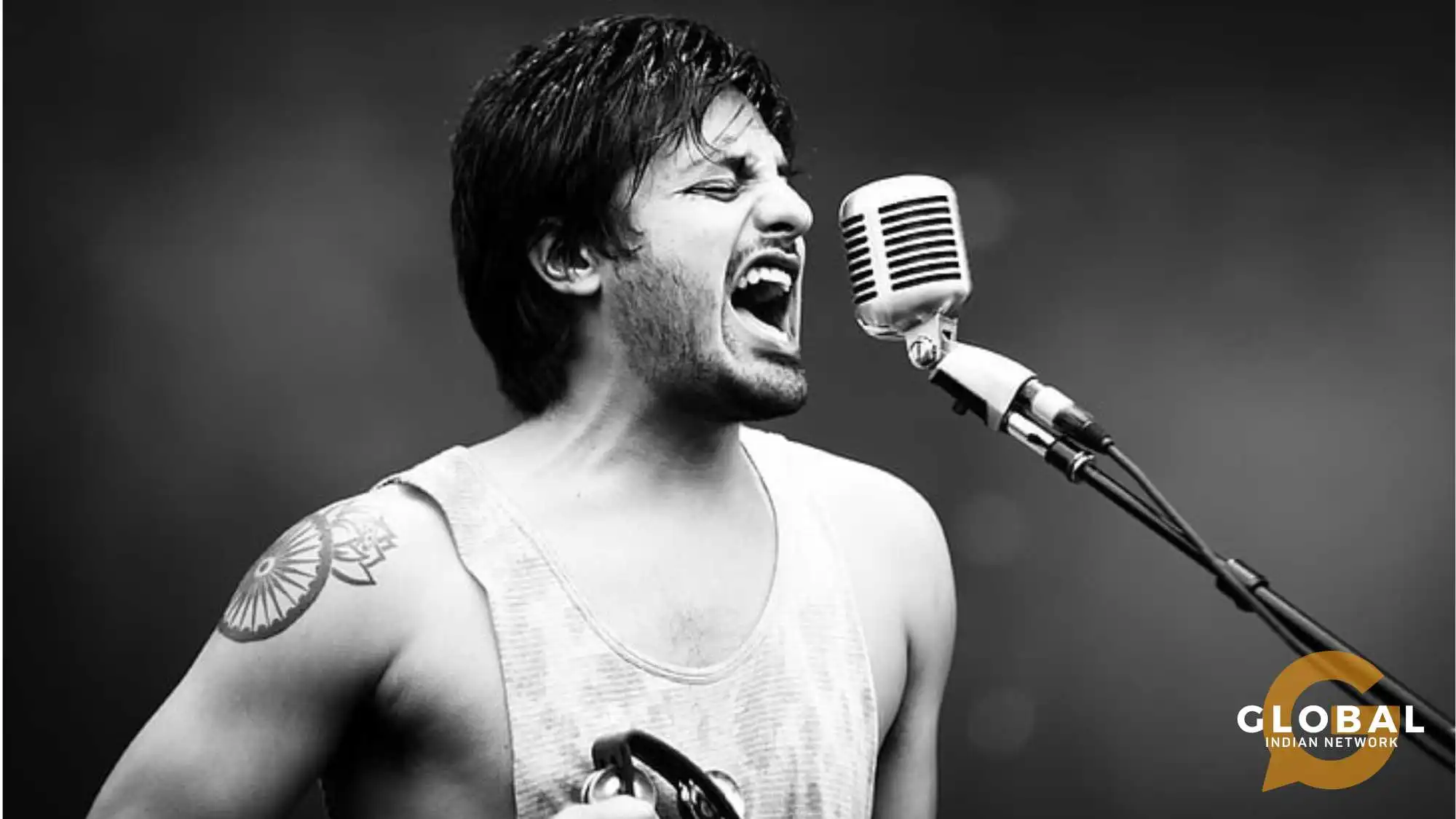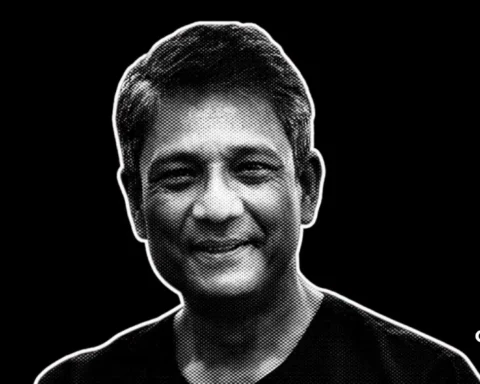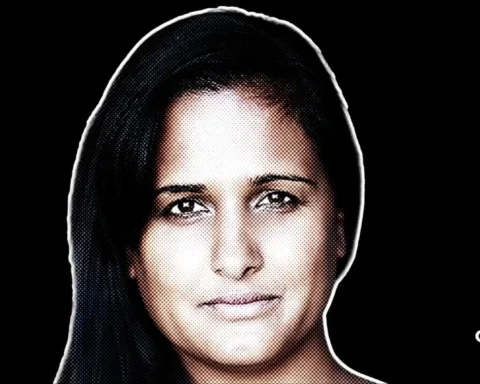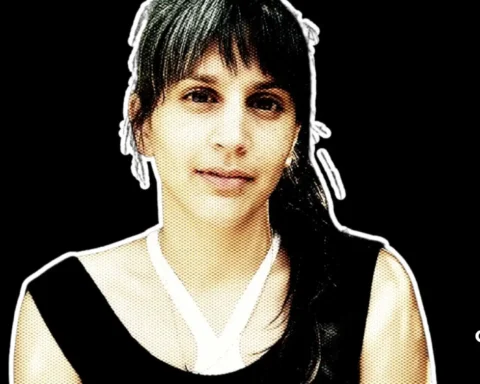Sameer Gadhia’s journey from different roots to making music with Young the Giant is a convincing story that digs into his multicultural childhood, the development of the band, and the evolution of their sound. He was born on July 10, 1988, in Ann Arbor, Michigan, to Indian parents. Throughout his childhood, he was influenced by both Western and Indian cultures.
Table of Contents
Young the Giant: Band Members
The members played a significant role in forming Young the Giant’s melodic personality, which includes:
- Sameer Gadhia – lead vocals, percussion, guitar (starting around 2004)
- Jacob Tilley – guitar, keyboards, synthesizer (starting around 2004)
- Eric Cannata – guitar, vocals, keyboards (starting around 2007)
- Payam Doostzadeh – bass guitar, synthesizer, vocals (beginning around 2008)
- Francois Comtois – drums, percussion, vocals (starting around 2007); bass guitar (2004-2007)
Former members of “The Jakes” (the band’s previous name) include:
- Jason Burger – drums (2007)
- Ehson Hashemian -keyboards, piano, and synthesizers (2004–2009)
- Sean Fischer – drums (2004–2007)
LISTEN TO THIS PODCAST: Music, Culture, and Indianness: The Journey of Ila Arun
History: Development of Young the Giant
Formed in 2004 in Irvine, California, as “The Jakes,” the band comprised Jacob Tilley, Addam Farmer, Kevin Massoudi, Ehson Hashemian, and Sameer Gadhia. The name was an abbreviation of the members’ first names. In 2008, Gadhia, Tilley, Hashemian, Eric Cannata, Francois Comtois, and Jason Burger stabilized in the face of personnel changes.
Despite strategic difficulties because of different schools, they recorded the EP “Shake My Hand.” Burger left for schooling, and Payam Doostzadeh joined. In 2009, they played at South by Southwest, acquiring attention with songs like “Garands At Normandie” and “Cough Syrup.” In December 2009, they changed their name to Young the Giant after signing with Roadrunner Records.
Experiencing childhood in a multicultural environment, he was presented with many musical genres, including traditional Indian music and Western rock. This cultural combination significantly affects his melodic style, adding to the interesting sound that Young the Giant is known for.
This amazing band earned widespread respect with their self-titled debut album, “Young the Giant,” in 2010. The collection highlighted hit singles like “My Body” and “Cough Syrup,” which laid out Young the Giant as a noticeable presence in the alternative rock scene. Gadhia’s deep and versatile vocals joined with the band’s dynamic sound, put them aside from different contemporaries.
As an Indian American artist shaping a melodic personality in the world of alternative music, his way is unique, with Young the Giant addressing subjects like the immigrant experience in America on albums like Home of the Strange(2016) and their most recent studio effort American Bollywood, an album in four sections.
YOU MIGHT BE INTERESTED IN: From Classical to Contemporary: Music as a Universal Language with Wali Hamid Ali Khan
Collaboration and Versatility
Gadhia’s melodic journey extends beyond Young the Giant, exhibiting his versatility through collaboration with different artists. This eagerness to explore different musical experiences underlines his commitment to developing as a musician and embracing different creative avenues.
Incorporating his experiences within his music, Gadhia has for quite some time been a supporter of the more prominent cultural variety, drilling down on the thought in “Point of Origin,” a series that runs on SiriusXM’s Alt Nation. In collaboration with the satellite radio broadcaster, he curates and hosts the series, highlighting an artist during every meeting with SiriusXM and adding a track from that artist into rotation on Alt Nation.
Collaborating with Asian American and Pacific Islander (AAPI) Heritage Month, the latest “Point of Origin” season featured Rahill’s music in May. Rahill, a singer for the garage rock band Habibi, New York, uses the sounds of her Iranian heritage on her first solo album. The session highlights Cameroonian-American electro-pop artist and producer Vagabon, with the series set to highlight Indian elective gathering The F16s beginning in July.
In an interview with Jim Ryan, Sameer Gadhia revealed his underlying goal for “Point of Origin” as a journey to connect with alternative artists who shared his unique experiences. Gadhia sought to showcase its rich, collaborative history and challenge its confusion about being related to straight, white males. The general mission was to emphasize alternative music as a genre motivated by different influences, rising above lines of language, beat, and nationality, actively working to reshape the perception of this vibrant and inclusive musical community.
LISTEN TO THIS PODCAST: Rhythms of Life: The Transformative Power of Music with Ashwin Sood
Conclusion
Sameer Gadhia‘s journey is a testament to the power of cultural diversity in music. From his multicultural upbringing to his pivotal role in Young the Giant, Gadhia’s unique experiences have profoundly shaped the band’s sound and identity. His efforts extend beyond his own music through collaborations and initiatives like “Point of Origin,” which spotlight diverse artists and challenge genre stereotypes. Gadhia’s influence underscores the importance of inclusivity and cultural representation in the alternative music scene, making him a significant figure in redefining its landscape.
FAQs
What is Sameer’s point of origin?
Gadhia is the child of immigrants from Ahmadabad, India, who came to the U.S. in the 80s presently before he was born.
Where did Sameer Gadhia go to high school?
Sameer Gadhia, the lead singer, graduated from Irvine High School in 2007.
Where was Sameer Gadhia born?
Gadhia was born in Ann Arbor, Michigan, and experienced childhood in Irvine, California. He comes from a family of musicians, particularly Indian classical musicians. His sister, mother, and grandma are singers, all adding to this rich generation of music.










[…] In this comprehensive exploration, we will delve deep into the inspiring journey of chutney music, tracing its evolution from its humble beginnings to its global reach […]
[…] is an integral part of Indian culture, and the lyrics of Indian music play a significant role in shaping the country's artistic heritage. In this article, we will delve […]